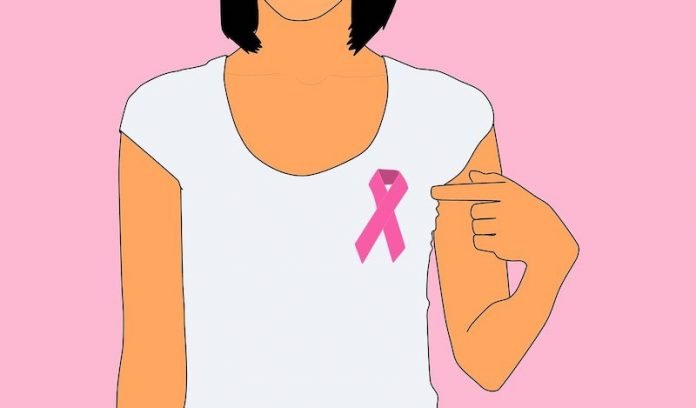
Faulty versions of the BRCA1 and BRCA2 genes are well known to increase the risk of breast cancer in men and women and in ovarian cancer.
In a new study from the University of Cambridge, researchers found BRCA1 and BRCA2 are linked to several other cancers, including those that affect men.
Since these genes were discovered in the mid-’90s, numerous studies have explored possible links between BRCA1 and BRCA2 mutations and other cancers.
BRCA mutations are uncommon, affecting around 1 in 300-400 people in the population.
In the study, the team analyzed data from almost 3,200 families with one or more members with the BRCA1 mutation and almost 2,200 families with members carrying the BRCA2 mutation.
The researchers examined the associations with 22 primary cancers.
From the data, the researchers estimated that men who carry a BRCA2 mutation have a 27% risk of developing prostate cancer by the time they are 80 years old, more than double the rate compared to non-carriers.
BRCA1 mutations were not associated with an increase in prostate cancer risk.
Carrying a defective copy of either BRCA1 or BRCA2 more than doubled an individual’s risk of pancreatic cancer to 2.5-3% by age 80.
The mutations were also found to increase the risk of stomach cancer, though the researchers caution that because of the rarity of this form of cancer, the number of patients in their datasets was small.
Mutations in both genes strongly increased the risk of breast cancer in men, though the disease is still very rare, accounting for less than 1% of all male cancer cases in the UK.
While a BRCA1 mutation increased a man’s risk of developing breast cancer more than four-fold to 0.4% by age 80, a BRCA2 mutation increased this risk by 44 times to 3.8% by age 80.
It is estimated that 38 out of 1,000 male carriers of the BRCA2 mutation will develop breast cancer by age 80.
The researchers were unable to find compelling evidence that mutations were linked to increased risk of some other cancers which were previously thought to be linked to faulty BRCA genes, such as melanoma.
If you care about breast cancer risk, please read studies about diet that could increase breast cancer risk, and drug that could fight hard-to-treat breast cancers.
For more information about cancer risk, please see recent studies about the key to preventing the spread of pancreatic cancer, and results showing unhealthy gut linked to aggressive prostate cancer.
The study is published in the Journal of Clinical Oncology.
Copyright © 2022 Knowridge Science Report. All rights reserved.



